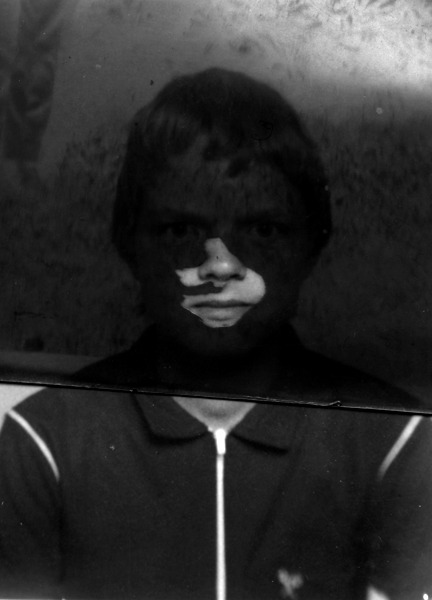
© Annabel Werbrouck from the series ‘Les oubliés…’
Why photography? What did actually push you to choose the photographic practice as your medium of artistic expression?
Annabel Werbrouck (AW): After finishing my studies on Geography in the Université Libre de Bruxelles (ULB), I came to the conclusion that it didn’t really interest me as a subject anymore. So, I decided to take a trip for three months to Vietnam. During that trip I discovered that I was interested in photography and that I wanted to show things that we don’t see if we don’t look. A need to show intimacy, humanity of different layers of society, often from outcasts had risen. I wanted to focus on peoples’ lives, habits. I wanted to meet them. So, I started a three year educational program of night classes in the School of Photography of Agnes Varda with the ambition to understand and undertake different aspects of photography.
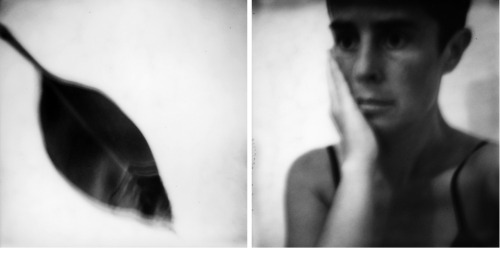
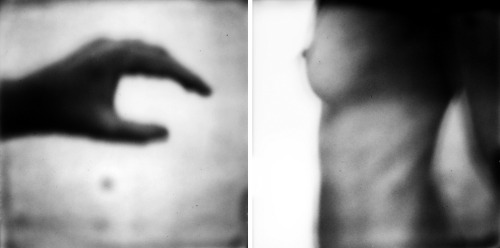
© Annabel Werbrouck from the series ‘… ou Face’
When did it all start? Tell us a bit about the beginning of your photographic work.
AW: At the beginning a big part of my photography was concentrated on social subjects. It kind of allowed me to discover worlds which would normally be out of reach. I am interested on the outcast of society, so I explored communities such as residential camping sites, or families of orphans from Ethiopia. After a life changing event, the death of my mother, three years ago, I found myself turning towards a kind of photography more intimate and personal with new works such as “a morning” as well as ‘Journal d'une femme à Berlin… (Diary of a woman in Berlin…)’, for instance.
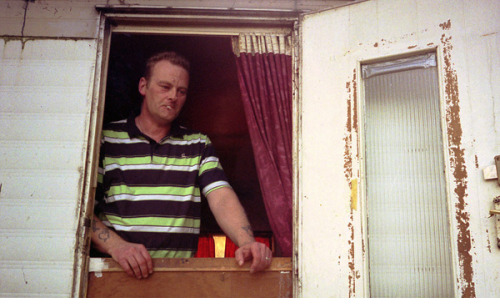
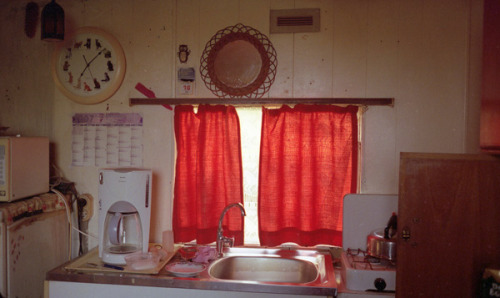
© Annabel Werbrouck from the series ‘Les campings résidentiels’
Henri Cartier-Bresson declared: ‘Your first 10000 photographs are your worst.’ How do you think your work has evolved during the time elapsed?
AW: My work is actually autobiographical, the series ‘Un matin… (A morning…)’ as well as ‘Journal d'une femme à Berlin… (Diary of a woman in Berlin…)’ are intimate series of self-fiction character, which concentrate around the self portrait, everyday life and its joys and sufferings. The life of a daughter in mourning for her mother’s death, adapting in a new city, the life of a couple are all subjects that I explore and present through these works.
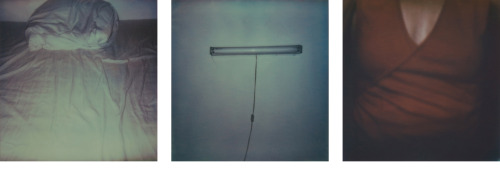

© Annabel Werbrouck from the series ‘Un matin…’
Why do you choose film? Is the film choice made in order to express something specific? What type of format are you working with? What type of film and what kind of technique do you use in general? How do you feel about photography in the digital era?
AW: For the moment I work in both analogue and digital. I have used Polaroid for a while, especially for the series ‘Un matin… (A morning…)’ but I have also worked digitally for a while ‘Journal d'une femme à Berlin… (Diary of a woman in Berlin…)’.
Let’s talk about your latest work. How did you get the idea?
My latest work entitled ‘Le garçon… (A boy…)’ is a series constructed from ancient photos which I found at my parents’ attic. The need to work with ancient images came to me when I had to empty the house after my mother’s death. I wanted to gather family albums, to keep memories, traces, fragments of her life alive… So, my last work emerged from these needs. In ‘A boy’ I concentrate on a narration which starts from ancient photos that I found and I re-modelled to something new in order to express my feelings and my needs.
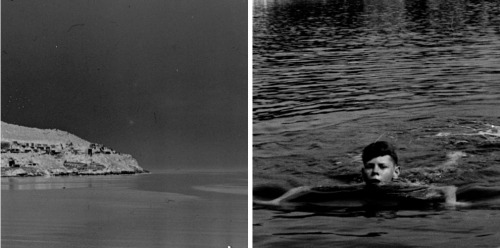
© Annabel Werbrouck from the series ‘Le garçon…’
What would you like to express through this series?
AW: I try to express the poetry of the time elapsed.
How did you organise your research?
AW: The project researches the material; the traces of time which elapses from these ancient negatives from these ancient photos.
What is the main inspiration of the project presented here? Do you feel that the work on this project has finished?
AW: The series is entitled ‘Un matin… (A morning..)’ and the images were created using a Polaroid camera after the death of my mother. I had to return to my childhood house and I found it empty. However, even though the rooms were stripped of their content they hid so many memories and emotions that I wanted to capture. At the moment I wanted to preserve the traces; and I tried to do that through self-portraits and dead natures. I tried to give a universal aspect to this work; an aspect to which everyone could relate to…
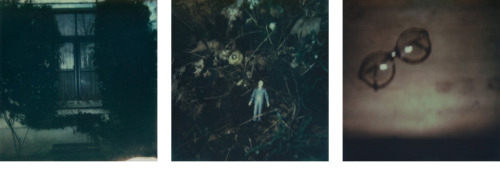

© Annabel Werbrouck from the series ‘Un matin…’
What are your future ideas and on what would you be interested to concentrate?
AW: Today the themes that interest me turn around the intimate, the personal and self-fiction. They are themes which concentrate on self portraits, and my every-day life with the joys and the sufferings that exist in it.
Is there any contemporary artist or photographer, even if young and emerging, that influenced you in some way?
AW: The photographer Anne De Gelas influenced me a lot with her way to treat photography as an autobiographical instrument; intimate and personal.
A photo-book which you recommend?
AW: The book of Katrien De Blauwer ‘I do not want to disappear silently into the night’ influenced me a lot in my research and practise of manipulating ancient images for creating poetic synthesis.
---
LINKS
Anna Werbrouck
Belgium
share this page